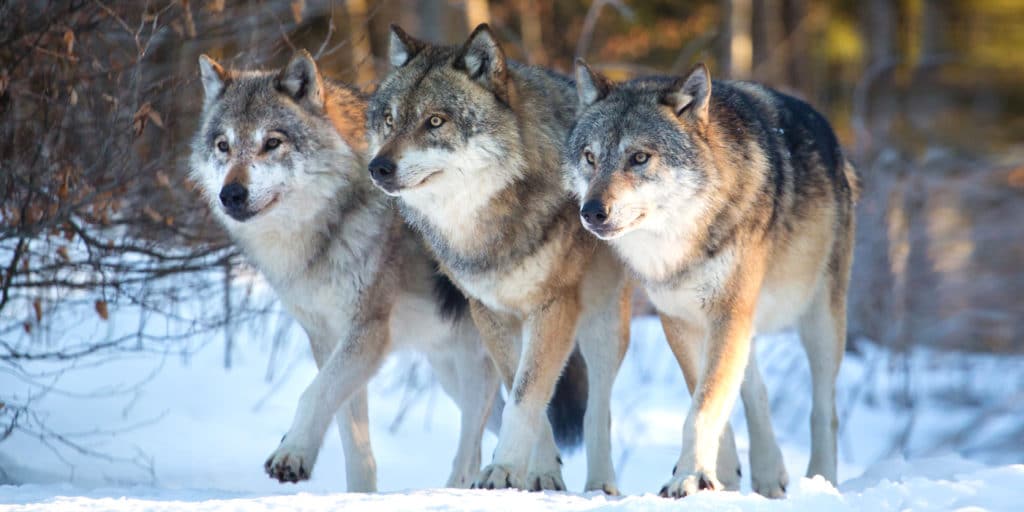January is World Carnivore Month! To celebrate, let’s take a look at the differences between Keto and the Carnivore diet.
Maybe you’re currently on Keto and trying to decide whether to try Carnivore. Or maybe you haven’t tried either yet and are wondering which one is better.
Both lifestyles have tremendous health and weight loss benefits. But there are some key differences. Let’s break them down.
What is Keto?
The Keto diet, short for ketogenic, is defined as a low-carbohydrate (usually below 20 grams a day) and high-fat diet.
The goal is to get into and stay in ketosis, where your body is using fat (hopefully stored fat) as a fuel source instead of glucose.
Keto Diet Pros
- Weight loss
- Lower blood sugar
- Improved insulin sensitivity
- Prevention or reversal of metabolic diseases
- Improved brain function
- Reduced inflammation
- Appetite control
- Longevity
Keto Diet Cons
- Hard for some people to restrict carbohydrates
- Keto flu symptoms (these can get pretty bad but can be mitigated with electrolyte supplements)
- Tracking macros is a big part of Keto lifestyle, it can be cumbersome
- Still possible to have processed junk foods within Keto parameters
- Tricky in social situations – requires planning ahead
What can I eat on Keto?
You can have any meat (as long as there is no added sugar), dairy, healthy fats, nuts, and low-carb vegetables like broccoli, cauliflower, and green beans.
Stay away from grains and starchy root vegetables. Avoid highly processed foods. Fruit is usually avoided, but berries are lower in carbs and allowed in small quantities.
Many people on Keto also enjoy desserts made with keto-approved sweeteners instead of sugar.
Are there variations of the Keto diet?
Yes, there are some variations.
A generic low-carb diet follows the same ideas as Keto but without aiming for nutritional ketosis. So you can have more carbs, up to 50-80 grams a day. That would still be considered low-carb compared to a standard Western diet that usually clocks around 250-300g of carbs per day.
There’s also a more restrictive version called Ketovore, which is like one step above Keto, but not quite Carnivore. Animal protein forms the bulk of this diet but with some extras still allowed. This option can be good for people who are trying to transition from Keto to Carnivore.
What is the Carnivore Diet?
The Carnivore Diet is exactly what it sounds like. You get to eat like a carnivore!
It cuts out all plant-based foods and focuses on pure meat and other animal-based products. Vast majority of carbohydrates come from plant sources so this diet is virtually zero-carb.
Is the Carnivore Diet healthy?
When the Carnivore Diet became popular for the first time a few years ago, many people thought it was mad. Traditional dietitians and nutritionists were clutching their pearls and promising a rapid demise for anyone who’d dare to try it.
But we now have a great deal of anecdotal evidence to suggest that Carnivore has plenty of health benefits. It seems to be especially beneficial to those with food allergies and auto-immune diseases.
There is a theory that some people are highly sensitive to oxalates and other potentially toxic compounds in plants which can manifest as allergies and auto-immune symptoms. For those people, cutting out plants leads to immediate and obvious health improvements.
The Carnivore Diet mimics our ancestral species-appropriate way of eating. Before agriculture, our ancestors would depend on hunting for subsistence for long periods of time. Our current over-abundance of plant foods and carbohydrates all year around, with no regard for seasonality, is completely unnatural.
What can I eat on the Carnivore diet?
All carnivores eat meat, but some only eat the meat of large, ruminant animals. So lots of ribeyes and ground beef.
You can also have chicken, pork, and seafood. But these meats don’t tend to have much fat. Fat is something you want to aim for on the Carnivore diet as it will be your main source of fuel.
Eggs are another staple for carnivores, as is butter.
You can have cheese and other dairy if you choose. But some people avoid dairy as it can be inflammatory.
Zero plant foods and no seed oils.
Pros of the Carnivore Diet:
- Weight loss
- Lower blood sugar
- Better insulin sensitivity
- Prevention or reversal of metabolic diseases
- Better brain function
- Reduced inflammation
- Appetite control
- Reduced food allergies
- Longevity
- Simplicity
Cons of the Carnivore Diet:
- For some people it’s too restrictive
- Carnivore flu symptoms – Same as Keto flu, except if can be even more severe
- Oxalate dumping – Oxalates are found in plant food, and when you cut out all plant food, you can get symptoms like fatigue, joint pain, and rashes, especially if you cut them out quickly
- Electrolytes – Easy to get low on electrolytes
- Social situations are harder, it’s tricky explaining to people why you only eat animal products
- Some people experience tummy upset
The Carnivore diet has all the benefits of the Keto diet, but there’s also the simplicity of it. You don’t really have to track anything.
What is the Lion Diet?
The Lion Diet takes Carnivore to the max. Basically it’s just what it sounds like, you eat like a lion.
Meat of large, ruminant animals (such as beef, lamb, goat, bison, deer) and water only.
The biggest benefit of the Lion Diet is the simplicity. It could not get any easier than eating meat and drinking water.
It’s great for people who have food allergies or high inflammation.
There is a lot of anecdotal evidence that it helps people with severe metabolic diseases to manage and sometimes reverse their illness symptoms.
What about coffee?
This is debated in both Keto and Carnivore circles.
Many Carnivores make an exception for coffee, even though technically it comes from a plant. It all depends on how strict you want to be!
Bulletproof coffee (coffee with butter and MCT oil) is highly popular with both camps as it’s a great way to crank up the fat macro. Carnivores can just skip MCT and have it with butter alone.
Which is best – Keto or Carnivore?
I always say the question is not what’s best in general, but what’s best for you.
In terms of results such as weight loss, health, and longevity, the stricter diet is likely to have more impact. In other words, Carnivore is likely superior to Keto in this respect.
But it is more restrictive and harder to stick to. So Keto may be more sustainable in the long term for many people.
Where to start
If you are not sure where to start, try simply going low-carb first.
And then keep cutting carbs further and working your way up to Keto, then Ketovore, and then Carnivore. Find the level that feels like the right balance for you in terms of results vs sustainability.
Compared to the carb-laden “standard Western diet”, any change in the direction of low-carb will be a definite improvement for your health, happiness and overall well-being.
Author: Roo Black

Roo is a fasting coach with over 5 years of experience. She leads the admin team of the Official Fasting for Weight Loss Facebook group – one of the largest fasting communities on social media with over 125,000 members. We highly recommend this group for anyone who is looking for fasting advice or coaching.


